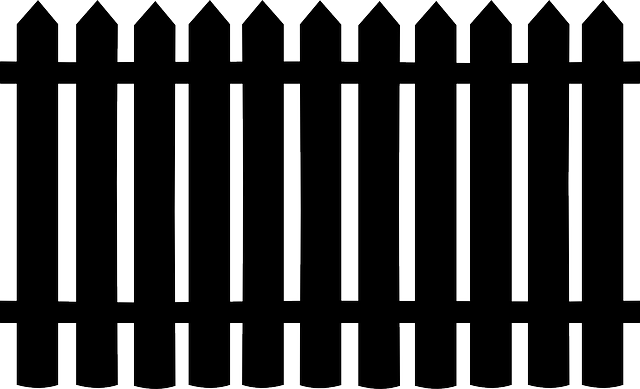In New Bedford, MA, choosing the right fence warranty is essential for safeguarding your investment. This comprehensive guide navigates the intricacies of fence warranties and guarantees, equipping homeowners with the knowledge to make informed decisions. We explore various warranty types, what coverage entails, and offer a step-by-step guide for filing claims. Additionally, learn maintenance tips to ensure longevity and maximize your warranty benefits. By understanding these fundamentals, you can protect your new fence while minimizing potential costs.
- Understanding Fence Warranty Basics in New Bedford
- Types of Warranties Available for Residential Fences
- What Does a Fence Guarantee Cover?
- Choosing the Right Warranty for Your Fence Project
- Filing a Claim: A Step-by-Step Guide
- Maintenance and Care to Prolong Warranty Validity
Understanding Fence Warranty Basics in New Bedford
In New Bedford, when investing in a new fence, understanding warranty basics is paramount. A fence warranty offers protection against defects in materials and craftsmanship, providing peace of mind for homeowners. Typically, warranties cover issues like rot, rust, or structural failures over a specified period, ranging from 10 to 25 years. It’s essential to read and comprehend the terms, conditions, and exclusions detailed in the warranty document.
Warranties can be manufacturer-backed, ensuring coverage for components like pickets, posts, and hardware, or they can be provided by the installing contractor, focusing on labor and installation issues. Some warranties even include liability coverage against property damage or personal injury resulting from fence defects. Familiarizing yourself with these guarantees is crucial in making an informed decision when selecting a fencing option that best suits your New Bedford property.
Types of Warranties Available for Residential Fences
When it comes to residential fences, homeowners have several warranty options to choose from. The most common types include material warranties and labor warranties. Material warranties typically cover defects in the fence’s composition, such as rot or rust in wooden posts or chain-link fabric. These guarantees usually last for a set number of years, ranging from 10 to 25 years, depending on the manufacturer and product quality.
Labor warranties, on the other hand, protect against any errors or flaws in the installation process. They ensure that if there are issues with the fence’s alignment, stability, or functionality within a specified period—often one to two years—the installing company will fix them without additional cost to the homeowner. Combined, these warranties offer comprehensive protection, ensuring that both the fence’s integrity and its proper installation are secured.
What Does a Fence Guarantee Cover?
A fence guarantee or warranty is designed to offer homeowners peace of mind and protection against potential issues that may arise with their new fence installation. These guarantees typically cover a range of problems, ensuring that any defects or damages are rectified without additional cost to the property owner. Common coverage areas include materials used in construction, workmanship (how the fence was installed), and structural integrity over a specified period.
Specific items often included in a fence guarantee are rot or decay of wooden posts or rails, rust or deterioration of metal components, misalignment or leaning of fence posts, and any issues related to the initial installation that may result in these problems within the warranty period. Some warranties also extend coverage to damage caused by extreme weather events like storms, high winds, or heavy snowfall.
Choosing the Right Warranty for Your Fence Project
When undertaking a fence project in New Bedford, selecting the appropriate warranty is a critical step that should not be overlooked. The right warranty ensures your investment is protected against any potential issues that may arise over time. It provides peace of mind, knowing that repairs or replacements will be covered if your new fence develops defects.
Several factors influence the choice of a suitable warranty. First, consider the type of fence material used; different materials carry varying levels of durability and warranty coverage. Also, evaluate the installer’s reputation and experience; established companies often offer more comprehensive warranties due to their expertise and commitment to customer satisfaction. Understanding the terms and conditions of the warranty is essential, ensuring it aligns with your expectations for protection and service.
Filing a Claim: A Step-by-Step Guide
Filing a claim under your fence warranty is a straightforward process, but it’s important to follow the correct steps to ensure a smooth experience. Here’s what you need to do:
1. Identify the Issue: Clearly understand and document the problem with your fence. Is there damage from weather, faulty installation, or wear and tear? Take photos of the issue from different angles as visual evidence can be helpful during the claim process.
2. Review Your Warranty: Carefully read through your warranty documentation to understand what is covered and for how long. Some warranties may have specific exclusions, so it’s crucial to know these details. Look for information on the claims process and any deadlines you must adhere to.
3. Contact Your Provider: Reach out to your fence warranty provider or the company that installed your fence. Explain the issue and provide the necessary documentation, including photos. They will guide you through the rest of the process, which may include scheduling an inspection and providing a repair estimate.
Maintenance and Care to Prolong Warranty Validity
Regular maintenance and proper care are essential steps to ensure your fence warranty remains valid for the full duration. Homeowners should establish a simple routine to keep their fences in top condition. This includes cleaning the fence regularly, removing any debris or vegetation that might obstruct it, and inspecting it for signs of damage or wear and tear.
Minor issues like rusting, splinters, or cracked posts can be easily addressed to prevent them from becoming bigger problems. Repainting, resealing, or replacing small sections as needed will contribute to the fence’s longevity. By taking these proactive measures, homeowners not only protect their investment but also ensure they can continue to enjoy the benefits of a strong and secure fence for years to come.
